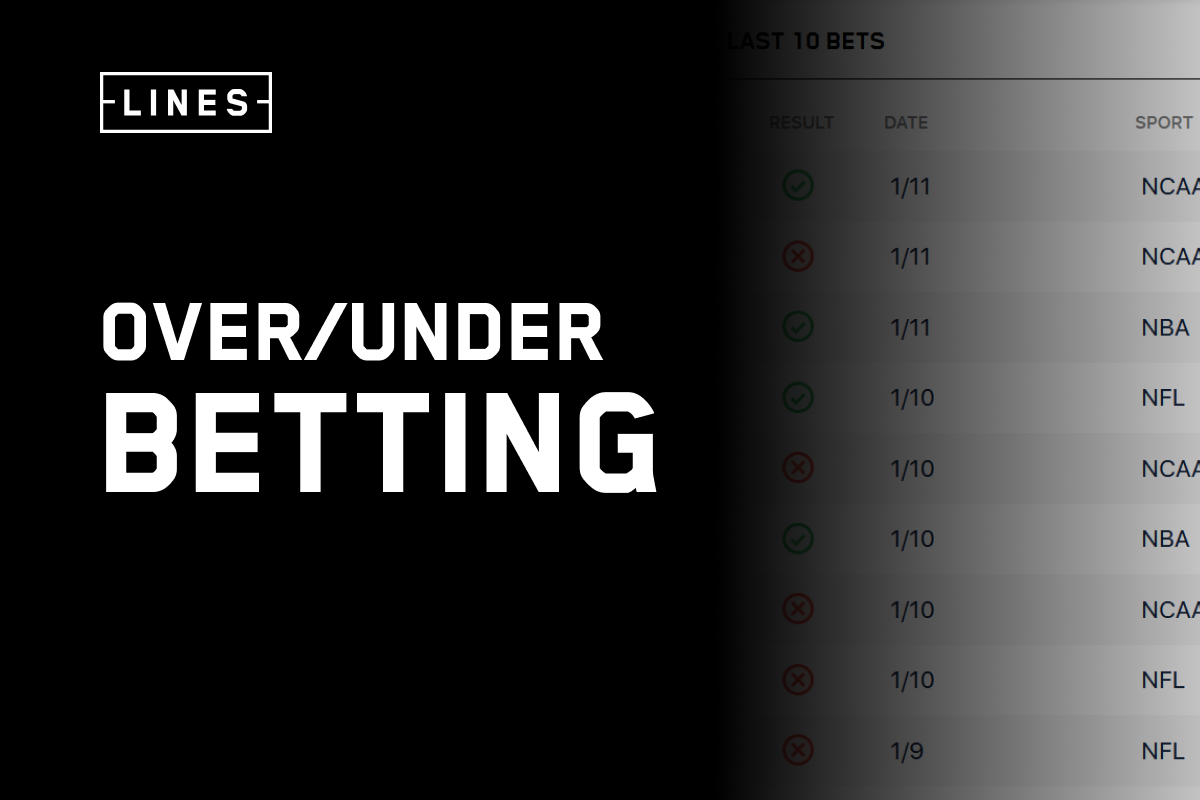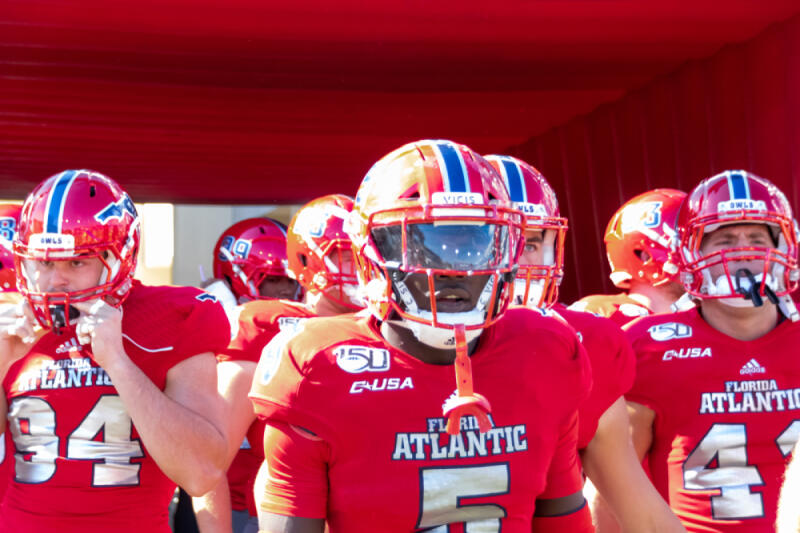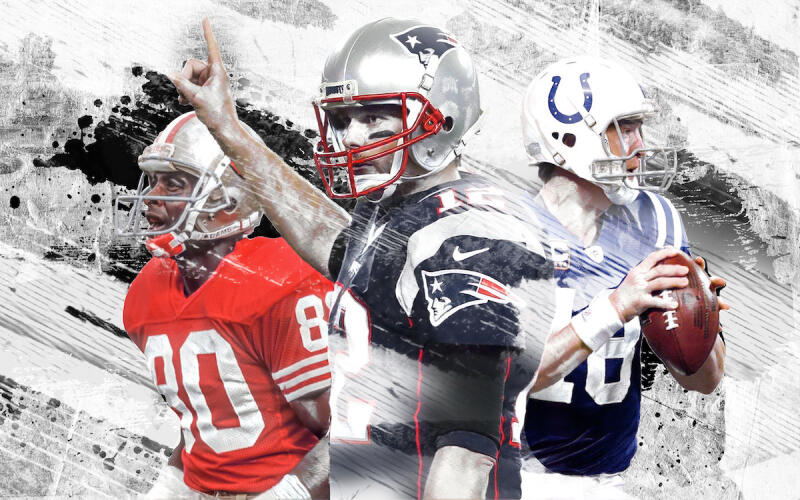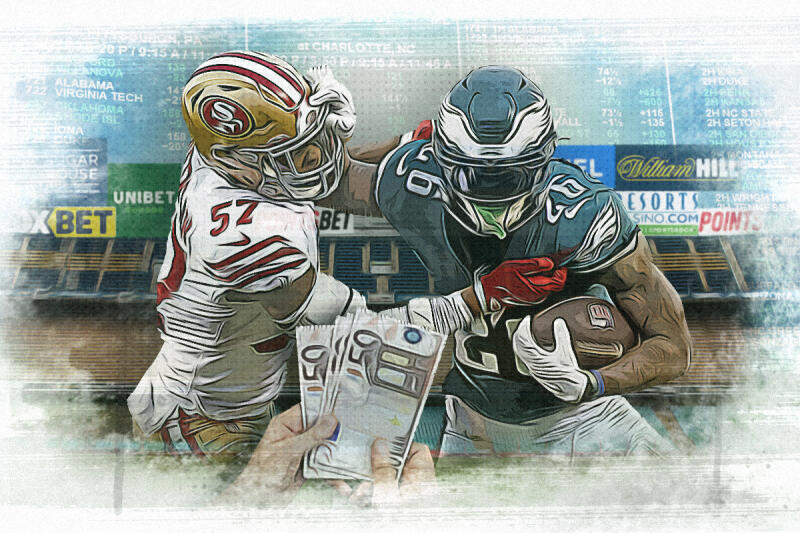The world of sports betting is thriving, with numerous ways to go about winning (or losing) money. One popular sports betting option is over/under betting, sometimes called “totals.”
Here, you typically place your bet based on which team you believe will win and by how much. But the beauty of over under betting is that it can extend far beyond the final score of a game.
For example, you can choose to bet on how long it takes before the first time-out is called or how many times a specific player throws a pass. Does this sound like the kind of sports betting you’d enjoy? Read on to learn more and find out.
What Is Over Under?
Over/under betting can be on things like touchdown passes in a game, stolen bases in an inning, three-pointers in a quarter, and so on.
In general, though, over/under refers to the total score of a sports event. Before the start of a game, oddsmakers submit the total score based on how they believe the game will play out.
It’s then up to the bettor to wager on whether the total score is over or under the set score. So let’s say there’s a game scheduled between two teams, and DraftKings set the end score to be 107.
When you place your bets using the over/under option, you bet “Over” if you think the true end score will be more than 107, or “Under” if you think it’ll be less than 107. You don’t have to try to predict the end score yourself; a simple “Over” or “Under” will do.
Once the end of the game comes, the total score will dictate whether you win. If you bet “Over” and the total score is 109, for example, you win the bet. But if the score is 106, you lose. But if you instead bet “Under,” with a score of 106 on a game with a set score of 107, you win.
In the event that the score ends up being exactly what the oddsmakers set it to (in this case, 107), all bets get refunded to the bettors. These instances are called overs-unders-pushes.
Key Takeaways
- Over/Under betting doesn't require predicting exact final score.
- It's possible to bet on various elements including player passes or time-outs.
- Oddsmakers set a score, bettors guess if actual score will be over/under.
- If actual score equals oddsmakers' set score, all bets are refunded.
- Betting requires careful research into player stats, strategy, and environment.
- Over/Under betting can be combined with parlay bets for higher payouts.
Betting Odds Calculator
What Is Totals Bet?
Remember, over under can include props, season wins, and a whole lot more. When a bet specifically centers on the total score between two teams, it’s referred to as a totals bet, and the rules outlined above apply.

So if you believe that the final outcome of a game will be greater than the score set by the sportsbooks, you would be “Over.” But if you think the final score will equal less than what was set by the sportsbooks, you would bet “Under.”
For example, let’s say BetMGM posted a final score of 190 between the Dallas Cowboys and the Philadelphia Eagles. You’ve done your homework and realized that the two teams have stellar defense this season. However, their offense is lacking.
A final score of 190 or more would make sense if the two teams had better offense. But when you factor in their strong defense, it’s unlikely that the final score will so that high. Therefore, a wager on “Under” is logical.
Over/Under Definition
In betting, the bettor’s job is to predict whether the total score between two teams will exceed or fall below a set amount. It’s not necessary for the bettor to guess the exact score at the end of the game. If the over under is exactly what the bettor wagered, their bet gets refunded to them.
The most popular form of over/under betting is the totals bet, as discussed above. Here, the bettor places a wager on whether they think the end score will be above or below the final score set by a sportsbook. Please note that if a game goes to overtime, any points scored then count toward the final score.
As it stands, point spreads are the most common betting option among sports bettors. Moneylines is next, followed by totals (over/under) betting.
How to Make an Over/Under Bet
While you can certainly submit an “Over” or “Under” bet and hope for the best, seasoned sports bettors know to do a bit more research before placing their bets. For starters, the final scores of most sporting events are up compared to just a few years ago.
For the longest time, bettors would bet “Under” and do well in doing so. Take the NBA, for example. At one time, oddsmakers would regularly set the final score to 180 in NBA games. But today, players are playing differently compared to how they played five years ago.
Three-point shooting and small-ball are more pervasive than they have perhaps ever been. As a result, the NBA hasn’t seen a total score of less than 190 since back in 2017. As such, it’s harder for bettors to trust an unders wager to win them the bet.
And it’s not just the NBA that’s seeing different play styles. Games are universally played faster across the sports world; teams are taking different approaches in their strategies, and environmental effects like the weather can’t be dismissed, either.
All of these changes culminate into final scores that are vastly different than they used to be. So, the average totals in sports games are changing rapidly. It is therefore up to you to research these changes and any trends to determine the best bet.
If you’re not concerned with stats and figures, and you think the final score will be more than that which was set by the oddsmaker, you’d simply bet “Over.” Conversely, if you think the final score will be less than that which was set by the oddsmaker, you would bet “Under.”
As an example, let’s assume that the oddsmaker set the final score to 210, and you bet “Under.” At the end of the game, the final score comes out to 206. In this instance, you win the over-under bet.
To place your bet, you need to choose a sportsbook. You have plenty of options with which to do this. Some of the more popular sportsbooks include DraftKings, BetMGM, and FanDuel.
Once you’ve selected the sportsbook you want to use, you will need to sign up to create an account. From there, you can use the sportsbook’s website or its official app (if available).
When you’re ready to submit your wager, simply navigate to the sport that you’re betting on. Here, we’ll assume it’s an NFL game. Click or tap on the sport and choose either “Over” or “Under” is the provided module (please note that “Over” is always the top-most choice).
If you’re using the sportsbook’s website, you should see a bet slip on the right side of the screen. But if you’re using an app, this should appear automatically.
Finally, submit your bet if you’re already logged in. If not, you will be prompted to log in, and then you can submit your bet.
Keep in mind that many sportsbooks offer sign-up bonuses, so you may want to compare different ones to find the sportsbook that gives you the best chance of winning money.
Moreover, you can absolutely use more than one sportsbook at any given time, so it doesn’t hurt to shop around.
How Much Do You Win on an Over/Under?
In over/under, the total amount of money you win is based on how much you wagered at the time of the bet. A standard bet on the total is treated as a spread. First, the typical 10% cut will be taken by the sportsbook.
In an NFL game, the general rule of thumb is that you would bet $1.10 per $1 that you wish to win. So whenever you see “-110” next to a football game’s total points, that’s what it’s referring to. In which case, you’ll win $10 if you place a bet of $11.
If you risk $55, you’ll win $50; $110 gets you $100. Sportsbooks make the necessary adjustments for sports games that typically have lower scores, such as hockey and soccer. This is what’s known as adjusting the “juice,” where the sportsbook changes the amount they earn from bets.
Therefore, you might have to take a slightly higher risk to win, like $1.20 per $1 won rather than the usual $1.10. At the other end of the betting spectrum, an outcome with +100 odds means you bet $1 per $1.
How Are Totals Made?
Sportsbooks know their sports, and you can guarantee that their totals are going to be determined with lots of research backing them. A DraftKing over-under bet, for example, will look at factors such as offense, defense, the projected weather, the venue, and more.
Let’s look at a few matchups to help you better understand what goes into a sports bookmaker setting its totals.
Saints vs. Falcons (46)
Let's assume there’s a game scheduled between the Saints and Falcons, and it’s taking place at the Superdome. It’s no secret to sportsbooks and bettors alike that the Superdome has a reputation for having home-field advantage and quite a powerful one at that.
This advantage will certainly factor into the score set by sportsbooks. Experienced bettors will use this to factor into their betting decision. But that’s not all. If the Falcons have particularly poor defense this season, it’s likely that the Saints will score more in their matchup.
With these factors and others in the Saints’ favor, bettors may want to bet on the “Over” for this game.
Chiefs vs. Titans (43.5)
In our second example, let’s say there’s a Chiefs-Titans matchup, and DraftKings has the total set at 43.5. It’s important to note the half-point difference. A bettor who thinks the score will be 43 or less would wager “Under” for this game. But a score of 44 or more is for “Over.”
In this hypothetical matchup, both teams have shown middling offense throughout the season thus far. Therefore, it would make sense that there will be a low-score final. As such, it may be best for bettors to wager on the under (43 or less).
Best Over/Under Strategies
As we discussed earlier, unders betting has proven largely successful in recent years. But with the ongoing changes to play styles and other factors, sports bettors can’t just get on the under and call it a day.
Considerable research needs to take place to ensure you are making an educated wager. In the examples listed above, we looked at factors like offense, defense, venue, and weather. It’s up to the bettor to look into these factors to determine their bet.
It’s also advantageous to consider the percentages of over/under wins. In the past five years, the following leagues have seen unders win the majority of bets:
| Sport | Record Totals | Win % (Under) |
| NFL | 629-671-35 | 51.6% |
| NHL | 2913-2991-529 | 50.7% |
| MLB | 5810-5918-550 | 50.5% |
| NBA | 3010-3052-158 | 50.3% |
| NCAAB | 11350-11414-301 | 50.1% |
| NCAAF | 2551-2771-128 | 52.1% |
Most people want to cheer for teams to score points and do well offensively. Ineptitude on the field just isn’t something that makes for a good game. As such, totals are often priced a bit higher than normal.
It’s also important to note that even if you bet “Over” in a football game, for example, and the total score is already abnormally low in the second-half, you aren’t out of the game just yet.
You could still win the bet if there’s a rush of fourth-quarter points and the game goes into overtime. This isn’t uncommon, so you should never write yourself off until the game is officially over. That’s part of the appeal the sports; anything can and does happen.
Chances for Totals Bet to Win
You typically have a pretty even chance of winning an under/over bet if the market is particularly sharp. This means the higher-limit wagers are moving the line toward a closing number.
Sportsbooks make their money via “vigorish.” This is a charge set by the sportsbook, which is sometimes called “juice” or just “vig.” If you recall, a typical wager of $11 earns you $10 on a winning bet. This fee applies regardless of which side you choose on an over/under bet.
In some cases, the market may like one side more than the other, but not enough to make a complete move away from the current number. Therefore, you might see this in these situations:
- Over (-120)
- Under (+100)
As such, you would win an even payout ($10 for $10) based on your initial wager for under betting. But if you bet for over, you’d have to make a wager of $12 to win $10.
You’ll usually see -110 in either direction. In a typical betting market of -110/-110, you would have to win 52.38% of the time to be profitable long-term.
How to Handicap Your Totals Bet
When a bet is placed on the total score of a game, it is common to have many variables. This is especially true when betting on over/under in football.
Along with the injuries, history between teams, standings, consensus, and team reports, offensive and defensive trends for a team must be considered. The number of points scored at an outdoor football stadium will be affected by rain, snow, sleet, and heat.
Of course, the game you’re betting on might not be affected by the weather—it doesn’t matter what the outside temperature is during a basketball game. It’s important to consider every factor, but you have to be wise about what comes into play and what doesn’t.
And even though the over/under betting line is usually at either -105 or -110, betting sites can shift their odds to lower or higher depending on the various outside factors. It’s up to you to weigh these elements and determine if they have an impact on the game.
While it might seem like there are a lot of factors to consider, you don’t need to be overly knowledgeable about sports to bet on over/under. It certainly helps to know as much as you can, but that knowledge isn’t a guarantee that you will win your bet.
Many times, it comes down to making the right guess, and a vast historical background on the sport doesn’t impact the winner. You might even be a beginner without any knowledge of records, players, stats, and the like.
The good news is that there are many unique sportsbooks out there that make it easy to get your foot in the door. Many of them have their own apps that further simplify your sports betting endeavors.
As long as you stick with it and work to expand your sports knowledge, you can get just as formidable as the seasoned sports bettors.
Over/Under and Parlay
Parlays are designed to help you increase your payouts. As such, you can roll your over/under winnings into parlay bets. The only drawback in doing this is that all of your parlay bets need to be winners.
Based on this factor alone, many bettors agree that parlays are a bad idea. But with over/under, the odds might be in your favor. But first, you need to understand correlated parlays.
Although the rules are changing, sportsbooks will not book parlays in which one winning bet increases the chances of others winning. An example of this is a first-half parlay of a football game.
Parlays that include the under/over have a low correlation, but they are permitted. Let’s say there is an action-oriented NBA team playing against a team that is more focused on the half-court.
The winning probability of each team will drop if they play at their preferred pace. If you prefer the fast-paced team, you can parlay the under with the half-court team. Just be aware that some books allow correlated parlays, which can lead to payouts that are not in line with the correlation.
Over/Under FAQ
What does over under mean in betting?
An over bet is one that wagers a final score totaling more than that which was set by the sportsbook. An under bet is one that wagers an outcome totaling less than the final score.
How does over/under betting work?
A bettor places a bet of “Over” if they believe the final score will be more than what was set by the oddsmakers. But if the bettor thinks the final score will be less, they would bet “Under.”
Is it better to bet over or under?
Historically, unders betting has proven to be the most lucrative. However, it’s important to take into account player stats, records, offense, defense, venue, and many other factors.
What does over under 1.5 mean in betting?
This is common in popular betting markets and refers to the total goals between two teams during a matchup.
How do you calculate over under?
Simply add the two scores of two teams in a matchup. You can use a calculator, or you can use specialized over/under calculators found online.
What if the set total is a whole number?
If the sportsbook set the score to 110, for example, an “Over” bet would win if the final score is 111 or more. Conversely, an “Under” bet would win if the final score is 109 or less.
What if the game goes to overtime?
All bets should be taken seriously until the game is officially over. Any points scored in overtime count toward the final score, so don’t count yourself out until the final score is determined.
Our editorial content strives to be highly informative and educational to our audience, especially for visitors who are new or relatively new to analyzing and predicting sporting event results. All of our content is created by informed writers with backgrounds in their subject area and reviewed for omissions or mistakes.
Our editorial team is run by individuals with many years of experience in digital publishing, editorial, and content production. Our editorial content is always marked clearly in any instances where it may be sponsored by a third party, though it is still reviewed by our staff to ensure it remains consistent with our company mission.
- Popular
- Latest





